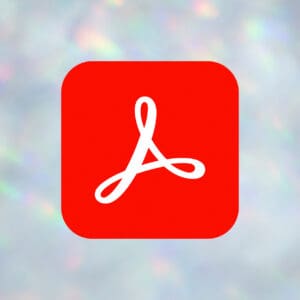Once I found out it was possible to get a dream job, even in my industry, I couldn’t stop thinking about it. No longer would I be stifled and dejected. I had to find a way to make things better.
There are good companies out there, and there are people making nice money in any economy. So why not me?
I don’t remember exactly when I became obsessed with becoming a top performer. I’d say it was around 2017. I was no stranger to hard work, but I never seemed to go anywhere. When I was stuck, I found Ramit Sethi through his personal finance book and blog.
I had previously written about his material on writing killer resumes and added my insights as an IT and Cyber Security professional as well. That exercise was incredibly helpful for me and hopefully, it was (or will be) for you.
Now, I want to do something similar in covering his 7 Common Mistakes People Make When Looking For a Job. I can’t find the video anymore, so if you know where it is, comment below and I’ll link to it here.
Without further delay, let’s get started with how to figure out what your dream job is, and how to avoid costly mistakes.
Table of Contents
Overlooking the Need to Find a Dream Job
There needs to be urgency. Don’t just do it later. Look into it now. You owe it to yourself.
In every job I’ve ever had, at least professionally, I would work hard and then ask for a raise or promotion. I would get told that there was a list of increasingly difficult things (team-sized projects) I would have to do over a couple of years in order to have a chance of a raise (and no promotion).
Everything I had done, including previous experience would mean absolutely jack. This would happen
EVERY
SINGLE
TIME.
I would get years and years of experience and go nowhere. I thought I just had to go through the wringer. I’ll pay my dues so to speak and eventually, with enough experience, I will break through the barrier. What’s that? My salary is well below average for the type of work I do? I’ll catch up eventually.
Once I got 10 years into IT and 3 years into Cyber Security, something clicked. I said, wait a minute. I’m already into 13 years of professional experience. Do I really need another year or two to get paid an average salary?
It simply never occurred to me to stop working at places I hate and value myself enough to get paid more. I just never saw it as an option. I probably didn’t have to wait until my mid-30’s to figure it out either.
I know this is just the first point, but it’s a good one. There needs to be urgency. Don’t sell yourself short, or think you need to wait a couple of jobs, years, or put up any other barrier that puts this off.
Disqualifying Yourself From a Potential Dream Job
It’s their job to reject you, not yours. Don’t do it for them.
It is difficult to gauge whether you are qualified enough for a potential dream job. So some people just avoid thinking about it altogether and count themselves out before anything happens.
This is an interesting point as this never was really a problem for me. I was the KING of rejection, meaning I was constantly rejected. Since graduating college, I have sent out resumes and applied to around 600 jobs.
I was literally doing the spaghetti at the wall strategy for job hunting. A dream job? What’s that? I’ll just apply to ALL THE JOBS. Jobs I was overqualified for, jobs I was underqualified for, jobs I didn’t want, jobs I wouldn’t mind, and a sprinkling of jobs I would love. It didn’t matter.
Well, it didn’t matter until I was constantly ignored, rejected, and ridiculed. I have actually been laughed out of a job interview before. Not even joking.
The goal for this second point besides putting your best foot forward is being more strategic with your dream job searches.
Pointless Soul Searching
Taking a multitude of personality quizzes and other assessments. This is a form of procrastination.
Here’s another thing I am the king at – procrastination. I was constantly reading and researching. Reading and researching is a good thing until you are only doing those things.
I knew what my IQ was, my Myers-Briggs type indicator, my Management by Strengths temperament, astrology sign, and more. The problem was, I knew these facts about myself more than I knew which company positions would be dream jobs and names of great hiring managers.
Once I flipped the switch, I let the minutiae consume me. Once you realize this though, you should be able to turn things around by making steps towards figured out options for potential dream jobs.
Trying to “Figure it Out” Alone
Take people who’ve “made It” to lunch or coffee and get their advice.
This one is pretty underrated. I have always done things for myself, by myself. I couldn’t count on anyone. I’ve been burned and don’t trust anyone, so why would someone who is successful waste their time with me?
Boy did I have this one wrong. Since I wasn’t a great communicator, this meant that I had a ton of skills to learn before I even got to work on this point.
I applied and got a job that made some uncomfortable demands of me. I had to build relationships internally, externally, and with vendors. Furthermore, I was tasked with speaking for 45 minutes at a conference in front of hundreds of people. This meant I also had to learn public speaking. Yikes!
Long story short, it was learning to work with people that propelled me forward. It was a person that helped me get my first Cyber Security job and it was a personal (recruiter) that helped me get my dream cyber security job.
Don’t go it alone. Learn to talk to people. Learn to get help from people. And ultimately, learn to help other people.
Not Getting Specific
Where do you want to work and why? What value can you bring them?
The only way to get the type of job you want is to be specific. Here are some questions you can ask yourself to get the wheels turning:
- What type of organization do you want to work for? Government agencies, schools, private companies, public companies, non-profits, startups, etc.
- What makes you like these types of organizations?
- What does a typical work day look like for you?
- What types of people do you work with?
- What types of clients, customers, partners, and others do you want to work with?
- What skills do you have and what skills do you need to learn to be good at the type of work you want to do?
- What can you offer to the type of organizations you want to work for?
- What can you do in the first 6-months, year, and 18-months can you do to help them?
- What is the killer thing they would hire you for?
It’s good to find what you want, but ultimately you need to be able to demonstrate that you are a great fit. Not only do you have to be a great fit, but you also have to convince them you are a great fit. This is easier said than done.
Be sure to test responses and approaches to see the types of statements resonate. At first, you may come across as arrogant. As you learn to communicate more you can help the shift.
Put yourself in their shoes and describe how you can help them. Once they see you can help, it will be easy to go to the next phase.
Update Your Resume
Resumes are so much more than a list of chronological events. This document should tell a story about you, not list general things you’ve done.
I took this one for granted for far too long. My old resumes were quite literally a list of facts or tasks in reverse chronological order. All the advice was the same. Make your resume 10 pages, make your resume 2 pages, and be sure to use a specific font face, and size.
It was all worthless info. No wonder my resume barely turned heads. No one ever told me to turn my resume into a narrative. A document that literally excites recruiters and hiring managers.
I won’t go into too much specificity here as I wrote about this last year in greater depth (also mentioned at the top of this article).
I went from shotgunning resumes that I spent minimal effort into changing (if at all), to spending around 160 hours meticulously building my resume to send to specific dream job opportunities.
Only Thinking About Yourself
Don’t find yourself saying I, I, I, I, I, I over and over. Let them know how hiring you will be their best decision.
Man, this one probably hits the hardest. My main pitch at job interviews was that I would be a smart pick because I learn quickly, will be reliable, and will become the SME amongst my peers. It was all about me.
My pitch was “hire me, I’m pretty smart and good and stuff.”
Yikes! I cringe at all the wasted opportunity. Again, I was just following standard advice. This isn’t the time to talk about your temperaments and work ethic. That will automatically settle as you describe your experience, give examples, answer their questions, and more.
They not only need to hire you to solve their current issue(s), they need to know hiring you is their best option.
Man does this feel good to nail down. At my dream job, management was happy they found me. They brought it up over and over. They’ve never been so glad to pay an expensive recruiter’s fee and make an offer close to my asking salary.
There were other picks that could have satisfied their requirements, but going with me offers them the best chance to complete their goals and projects.
If you have no idea what I’m talking about, I encourage you to try it. Get to this point. Work doesn’t have to suck and there are good companies out there. Even if you haven’t seen them.
Final Thoughts
I love these types of thought exercises, reflections, and actionable points. They can provide the pathway to change.
Notice how I didn’t specifically mention tech skills you need to learn. Although experience and skill-building are necessary, they aren’t everything. I can’t tell you how many times I heard a Security Manager say they can teach people Cyber Security, they just need good people. Even if you don’t plan to move onto management, you still need soft skills.
Do you now understand why finding your dream job is so important? By mid-journey, you can literally change your work style, productivity, mental health, salary, and benefits. The best part is that you don’t even have to nail everything down perfectly.
In 3 years, I was able to:
- Nearly triple my salary.
- Improve benefit quality and coverage.
- Get the work-life balance I’ve always wanted.
- Work on the type of projects that charge me up.
- Work with incredible people.
- Increase mental health 10 fold.
- and more.
Do any of these points resonate with you? Which ones do you struggle with and which ones come easy? Lend me your thoughts in the comments below!







